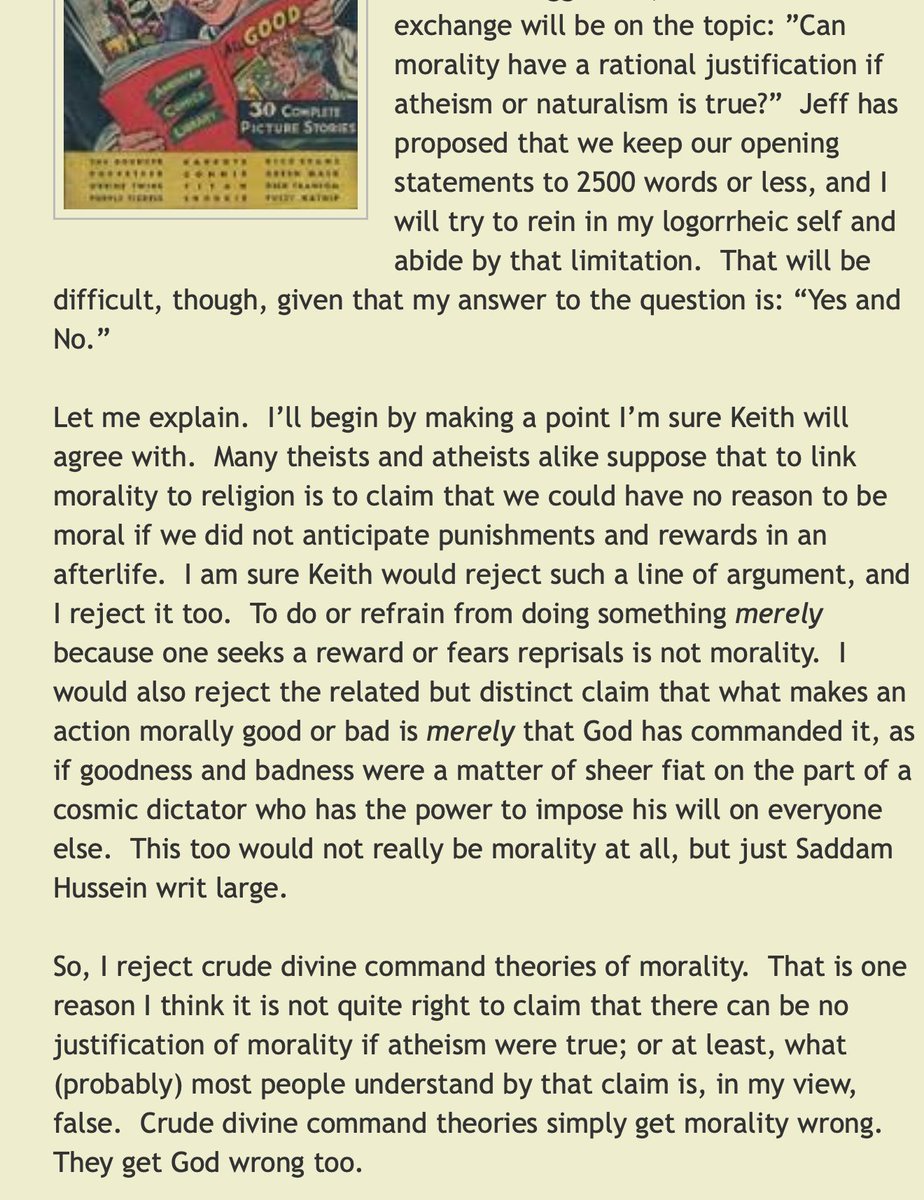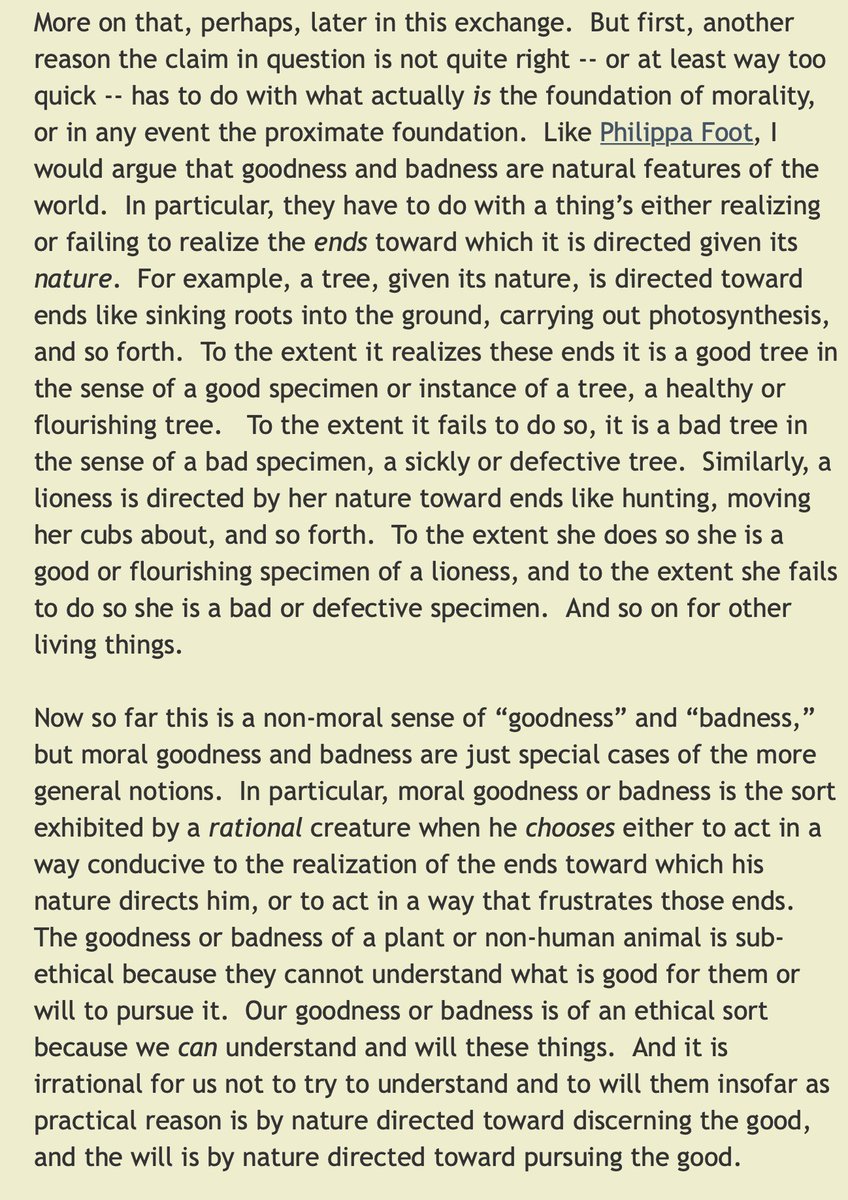
Since we can know that God is perfect, we can know that God is (perfectly) wise and just.
So we know that all God’s acts are perfectly wise and just.
Some of God’s acts may not seem to we fallen & finite beings to be wise and just, but that is because we are fallen & finite.
So we know that all God’s acts are perfectly wise and just.
Some of God’s acts may not seem to we fallen & finite beings to be wise and just, but that is because we are fallen & finite.
My general argument in this territory is that we are simply NEVER in a sufficient epistemic position to JUDGE GOD.
This is the teaching of the book of Job.
This is the teaching of the book of Job.
1 No human being is ever in an epistemic position to justifiably judge God
2 Many atheistic arguments depend on human beings being justifiably able to judge God
3 ∴ any atheistic argument that requires this is necessarily unsound.
2 Many atheistic arguments depend on human beings being justifiably able to judge God
3 ∴ any atheistic argument that requires this is necessarily unsound.
To which we can add:
4 All versions of the Argument from Evil require this
5 ∴ All versions of the Argument from Evil are necessarily unsound
4 All versions of the Argument from Evil require this
5 ∴ All versions of the Argument from Evil are necessarily unsound
This argument is obviously unsound:
1 Nothing exists which cannot be empirically falsified
2 God cannot be empirically falsified
3 ∴ God does not exist
1 Nothing exists which cannot be empirically falsified
2 God cannot be empirically falsified
3 ∴ God does not exist
This argument
1 “God” is self-contradictory concept
2 Nothing self-contradictory can exist in reality
3 ∴ God does not exist
is easily answered:
“God defined in such a way as to be self-contradictory does not exist, but that isn’t how we define God.”
1 “God” is self-contradictory concept
2 Nothing self-contradictory can exist in reality
3 ∴ God does not exist
is easily answered:
“God defined in such a way as to be self-contradictory does not exist, but that isn’t how we define God.”
This argument is silly:
1 If God exists, he must be a thing of super-duper explanatory value for human science
2 God is not a thing of super duper explanatory value for human science
3 ∴ God does not exist.
1 If God exists, he must be a thing of super-duper explanatory value for human science
2 God is not a thing of super duper explanatory value for human science
3 ∴ God does not exist.
And as far as I am aware, ALL atheistic arguments boil down to this three:
1 the Argument from Evil
2 the Argument from self-contradiction
3 the “unnecessary hypothesis” argument
1 the Argument from Evil
2 the Argument from self-contradiction
3 the “unnecessary hypothesis” argument
Generally only the argument from evil still survives is serious academic circles, but it grows weaker and weaker all the time, and ALWAYS appeals to feelings.
So atheism has rebranded, retreated (without admitting it) into agnosticism, and now the MAIN argument one hears is “There is insufficient EVIDENCE for God.”
Unfortunately, THIS cannot survive Plantinga’s (and my) challenge: "What epistemological error is the believer making?"
Unfortunately, THIS cannot survive Plantinga’s (and my) challenge: "What epistemological error is the believer making?"
When faced directly with this question, the USUAL atheistic move is to retreat to subjectivity: “When I say ‘there is not enough evidence for God’ I mean ‘there is not enough evidence to convince *me*, personally.’”
But that says more about the atheist than about belief in God.
But that says more about the atheist than about belief in God.
• • •
Missing some Tweet in this thread? You can try to
force a refresh














